Is Pre-Workout Bad for Teens? Risks Explained
Author:
Unlock your full potential by engaging with our experts and community! Have questions about your fitness journey or looking for expert advice on weightlifting techniques? Don’t hesitate — leave a comment below and Oleksandr Maksymenko will provide a personalized answer and insights to help you reach your goals.
Torokhtiy is reader-supported. Some links are affiliate links, and we may earn a commission at no extra cost to you. See our disclosure page for details.
Many athletes looking to enhance their athletic performance turn to sports supplements, so it’s only natural for teenagers to be curious about pre-workout.
Unfortunately, it’s not the same for teens. Firstly, teens experience body changes; pre workout under 18 years could impact these changes. Secondly, the FDA doesn’t regulate pre-workout supplements. So is pre-workout bad for teens? Let’s find out!
Is Pre Workout Bad for Teens? — Unfortunately, researchers are yet to conduct extensive long-term research on the safety of pre-workout on teenagers. Which means there’s no conclusive answer. Furthermore, there are several factors to consider such as the ingredients in the supplements and the recommended pre workout age limit.
That said, pre-workout isn’t necessarily harmful or unsafe for teenagers. Instead, you have to discern when it’s okay to consume and when it’s not.
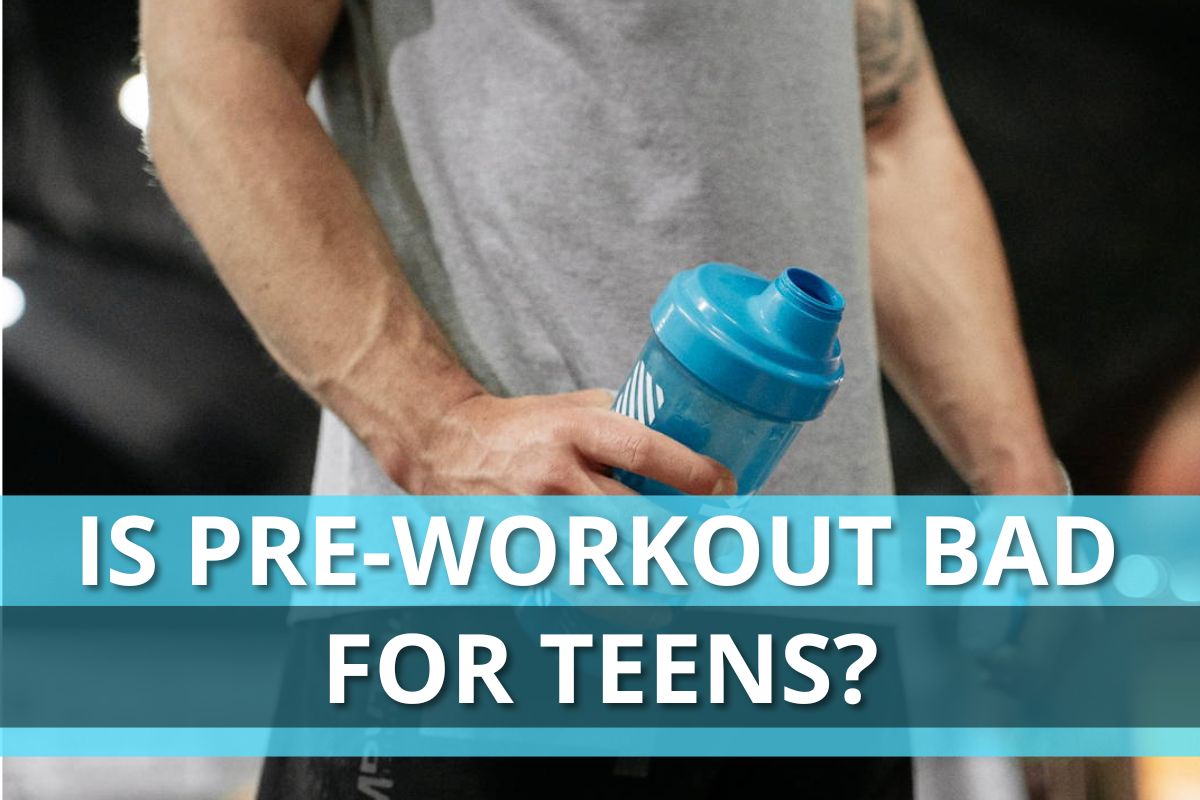
When Is It Okay?
It’s okay for teen athletes to consume pre-workout on three occasions:
- When the athlete uses it only for its intended purpose.
- When the athlete uses it correctly or as stated in the package.
- When the athlete inspects the supplement for safety.
Different supplements offer different benefits but in general, the intended purpose should be building muscle, increasing athletic performance, enhancing endurance, and boosting fitness goals. Teenagers should not use pre-workout supplements for weight loss.
As for the correct use of the product, it’s common for a young athlete to misuse pre-workout either by overdosing or dry-scooping. Teens must understand the hazard behind dry-scooping (not using a liquid during consumption) or taking more than one scoop of some supplements.
Lastly, and the reason behind the big question, “is pre-workout safe for teens?”, is the most significant safety concern behind pre-workout for teens: supplement quality. Again, sports supplements are dietary supplements hence unregulated by safety authorities. This means the product may contain banned compounds, allergens, or high amounts of stimulants.
So teens should only consume pre-workout from a reputable brand that manufactures using safe, high-quality ingredients. Additionally, look for cGMP (current good manufacturing processes) and ‘third-party tested’ markings on labels.
When Is It Not Okay?
It’s not okay for teens to consume pre-workout when the product has unclear information. For example, the manufacturers don’t list all ingredients and the proportions, nor are there safety regulations for its usage.
What Is the Right Age to Take Pre-workout?
So how old should you be to take pre-workout? Many supplements indicate 18 and above, but if the product has safe ingredients, there’s no reason a young teenager can’t use the supplement as well. And do you have to be 18 to buy a pre-workout? No, under 18 years olds can also purchase pre-workout.
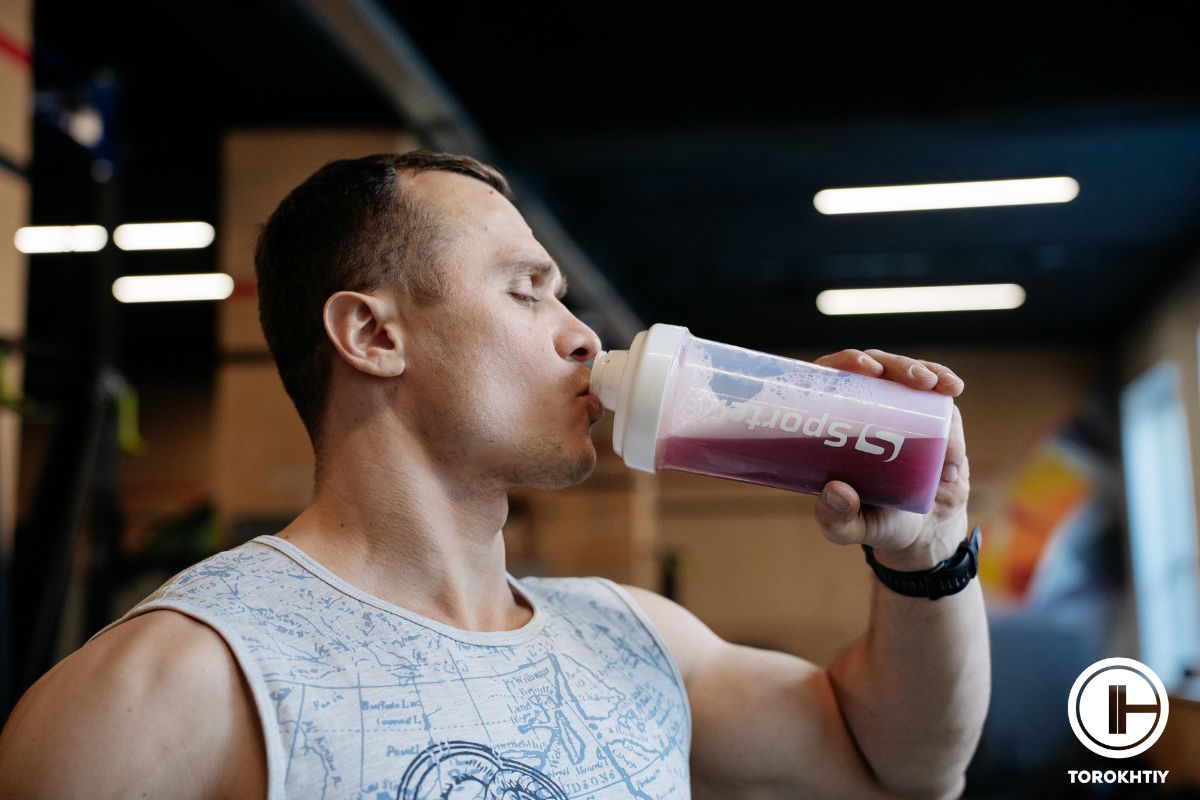
1 Benefit of Pre-workout for Teens
The reason for using pre-workout can be summed up in one phrase, improving athletic performance.
✅ Improves Athletic Performance
The ingredients in a pre-workout supplement can help an athlete have longer, more intense workouts which helps build performance faster. Firstly, beta-alanine is a beta amino acid, not used in protein synthesis. Instead, beta-alanine in athletes helps build up carnosine in the muscles, increasing muscle work capacity and decreasing muscle fatigue.
Secondly, there’s creatine monohydrate which acts as fuel for your muscles. It increases strength, agility, and jumping performance in short and long-term intervals.
Lastly, caffeine helps with mental focus, but also throwing performance, sprinting, muscle endurance, and various aerobic and anaerobic sport-specific actions.
3 Downsides of Pre-Workout for Teens
Unfortunately, there are two sides to a coin, which means there are drawbacks to teens taking pre-workout.
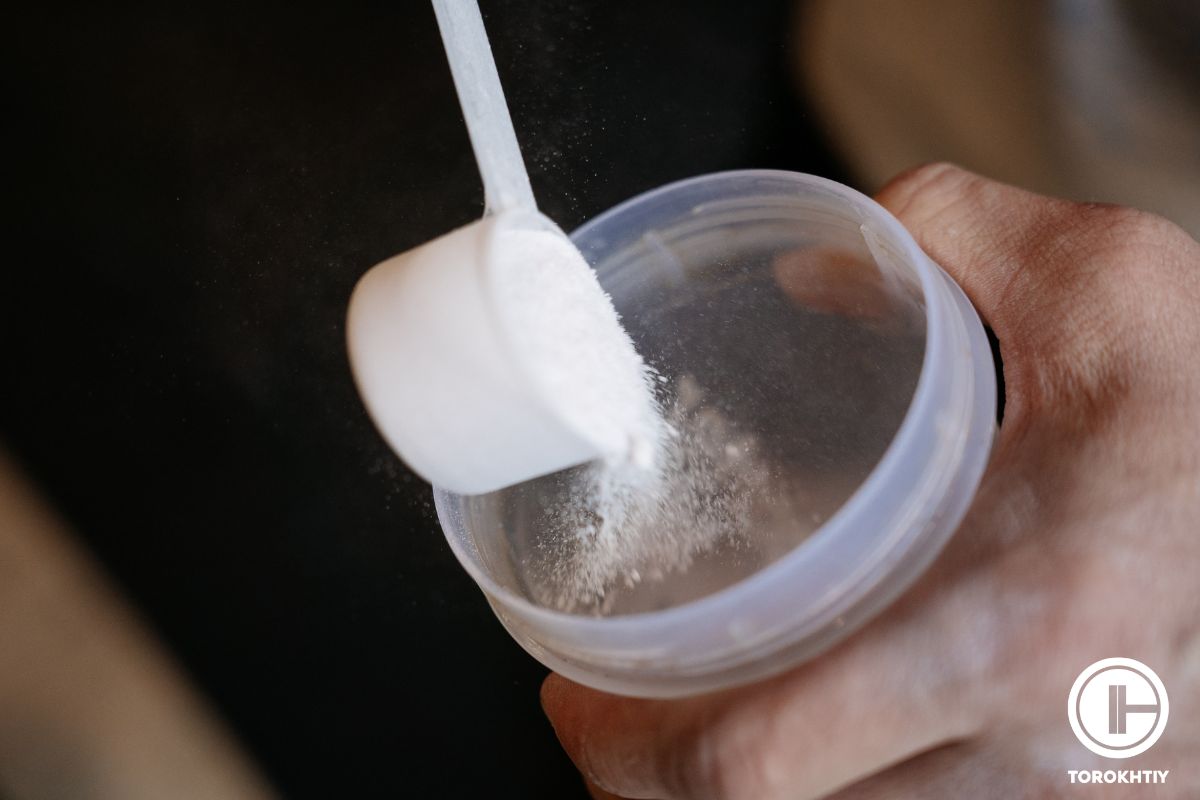
❌ May Contain Harmful Ingredients
By taking pre-workout, teens absolve the risk of adverse side effects of these ingredients.
First, while the body naturally creates creatine, taking added or excess creatine in supplements could lead to harmful side effects. Furthermore, with limited research on the impact of creatine on teenagers, the American College of Sports Medicine recommends that creatine should only be for athletes over 18 years old.
Secondly, too much caffeine also has side effects such as an upset stomach, sleep deprivation, headaches, and anxiety. This is why the American Academy of Child and Adolescent Psychiatry recommends that teens limit their caffeine intake to 100 milligrams, at most, per day.
❌ Unproven Benefits
At the beginning of the article, we mentioned that there’s a need for long-term research on the safety of pre-workout for teenagers. That said, there’s also a need for studies on the direct impact of beta-alanine and citrulline malate on performance in teens.
Other study points could include: What are the short and long term side effects of pre-workout on teenagers? What ingredients are helpful vs harmful? and at what age can you take a pre-workout?
❌ Lack of Safety Records
As a dietary supplement, pre-workout doesn’t require U.S. Food and Drug Administration (FDA) approval before they are sold. And even though brands should follow the FDA’s current good manufacturing practices to ensure the quality and safety of their product, it’s not a guarantee that the end product is safe.
The Pre-workout We Recommend – Bulk Advanced Pre-training Formula
Transparent Labs BULK Pre-Workout
- Serving Size: 1 scoop (21.2 g)
- Servings per Container: 30
- Calories Per Serving: 5
- Betaine Anhydrous Per Serving: 2,500 mg
- Taurine per serving: 1,300 mg
- Recommended by Athletes: Hafþór Júlíus Björnsson, Pat Li, PAULINA
With a comprehensive, evidence-based lineup of incredible ingredients, no added color, flavoring or sweeteners, and fully transparent labeling; BULK has set itself apart from its competitors by over a mile.
The Pre-Workout is carefully formulated to boost strength and stamina, enhance focus and build on muscle pumps to help consumers achieve muscle growth and improved performance.
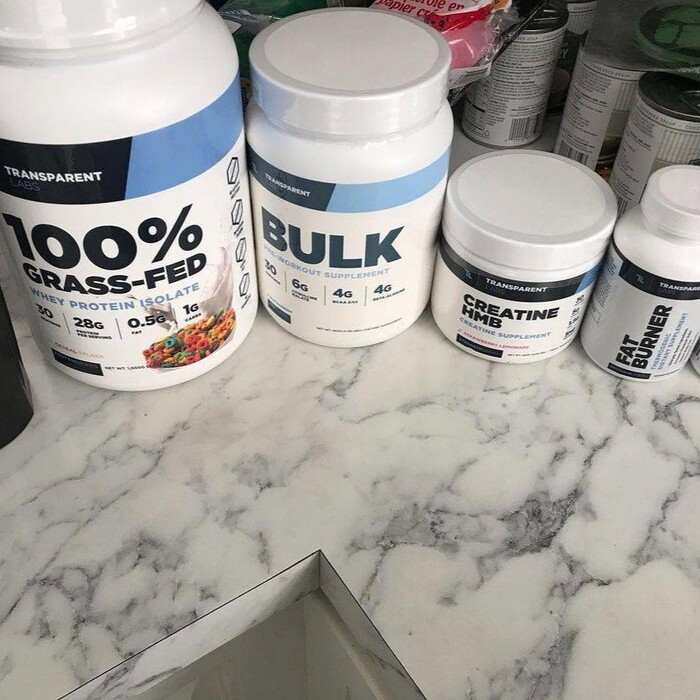
A quick look at it’s main ingredients, there’s: 8000 mg of citrulline malate, 4000 mg of beta-alanine, 2500 mg of betting anhydrous, 1300 mg of taurine, and 1000 mg of l-tyrosine, amongst other amino acids. One caveat, the formula contains 200 mg of caffeine which is higher than the recommended dose for teenagers. Nonetheless, the formula is excellent.
FAQ
Is Pre-Workout Bad for Teens?
No, it’s not unhealthy for teens to consume pre-workout. However, there’s still no conclusive evidence on its side effects plus different supplements may pose different risks to teens.
Can a 14 Year Old Take Pre Workout?
Yes, but if you want to, it is crucial to consult a doctor first. Follow the usage instructions and avoid misuse or taking multiple supplements at once.
Do You Have to Be 18 to Buy a Pre-workout?
No, it is legal for persons under 18 to buy pre-workout supplements in several states in the USA and multiple countries worldwide.
Conclusion
All things considered, pre-workout is safe for teens to consume. Despite the downsides, there’s not enough content to ascertain that pre-workout is unsafe for teenagers. Moreover, there’s a need for research on the side effects of pre-workout on teenagers. That said, one should be cautious during consumption.
Be keen on the ingredients in the supplements, ensure it’s third-party tested, stick to one supplement at a time, and follow the recommended dose .
Have you tried pre-workout as a teen? Or are you looking to purchase one for a teen? Comment below and tell us your concerns, recommendations, or experience.
Also read:
- Why Does Pre Workout Make You Itch
- How Long Does Pre Workout Last
- Does Pre Workout Make You Crash
- What to Look For in a Pre Workout
- Pre Workout vs Post Workout
- What Is Non Stim Pre Workout
- Nitric Oxide Supplements Guide
- Muscle Recovery Supplements Guide
References:
- Why ‘Dry Scooping’ Protein Powder Before Your Workout Is a Terrible Idea // Healthline: https://www.healthline.com/health-news/why-dry-scooping-protein-powder-before-your-workout-is-a-terrible-idea
- International society of sports nutrition position stand: Beta-Alanine // Ncbi: https://www.ncbi.nlm.nih.gov/pmc/articles/PMC4501114/
- Creatine for Exercise and Sports Performance, with Recovery Considerations for Healthy Populations // Ncbi: http://surl.li/gpzpy
- International society of sports nutrition position stand: caffeine and exercise performance // Jissn: https://jissn.biomedcentral.com/articles/10.1186/s12970-020-00383-4
- Common questions and misconceptions about creatine supplementation: what does the scientific evidence really show? // Ncbi: https://www.ncbi.nlm.nih.gov/pmc/articles/PMC7871530/
- American College of Sports Medicine roundtable. The physiological and health effects of oral creatine supplementation // Pubmed: https://pubmed.ncbi.nlm.nih.gov/10731017/
- Caffeine and Children// Aacap: http://surl.li/gpzpu
- Photos made by Torokhtiy Media Team.
Why Trust Us?
With over 20 years in Olympic weightlifting, strength training, nutrition coaching, and general fitness our team does its best to provide the audience with ultimate support and meet the needs and requirements of advanced athletes and professional lifters, as well as people who strive to open new opportunities and develop their physical capabilities with us.
By trusting the recommendations of our certified experts in coaching, nutrition, and sports training programming, as well as scientific consultants, and physiotherapists, we provide you with thorough, well-considered, and scientifically proven content. All the information given in the articles concerning workout programming, separate exercises, and athletic performance, in general, is based on verified data.
The product testing process is described in more detail here.
Author: Oleksandr Maksymenko
Certified Sports Nutritionist,
MSc Sports Dietetics
Specializing in: Weight management, Fitness / Sports nutrition
Oleksandr is a professional fitness nutritionist certified by the Fitness Professional Association (FPA). He follows the principles of evidence-based dietetics and fosters a healthy relationship with food in his clients, ensuring there are no strict prohibitions on their favorite foods or frequent lapses. His primary goal is not only to achieve results for you but also to sustain them over the long term, all while enjoying tasty and delicious food.



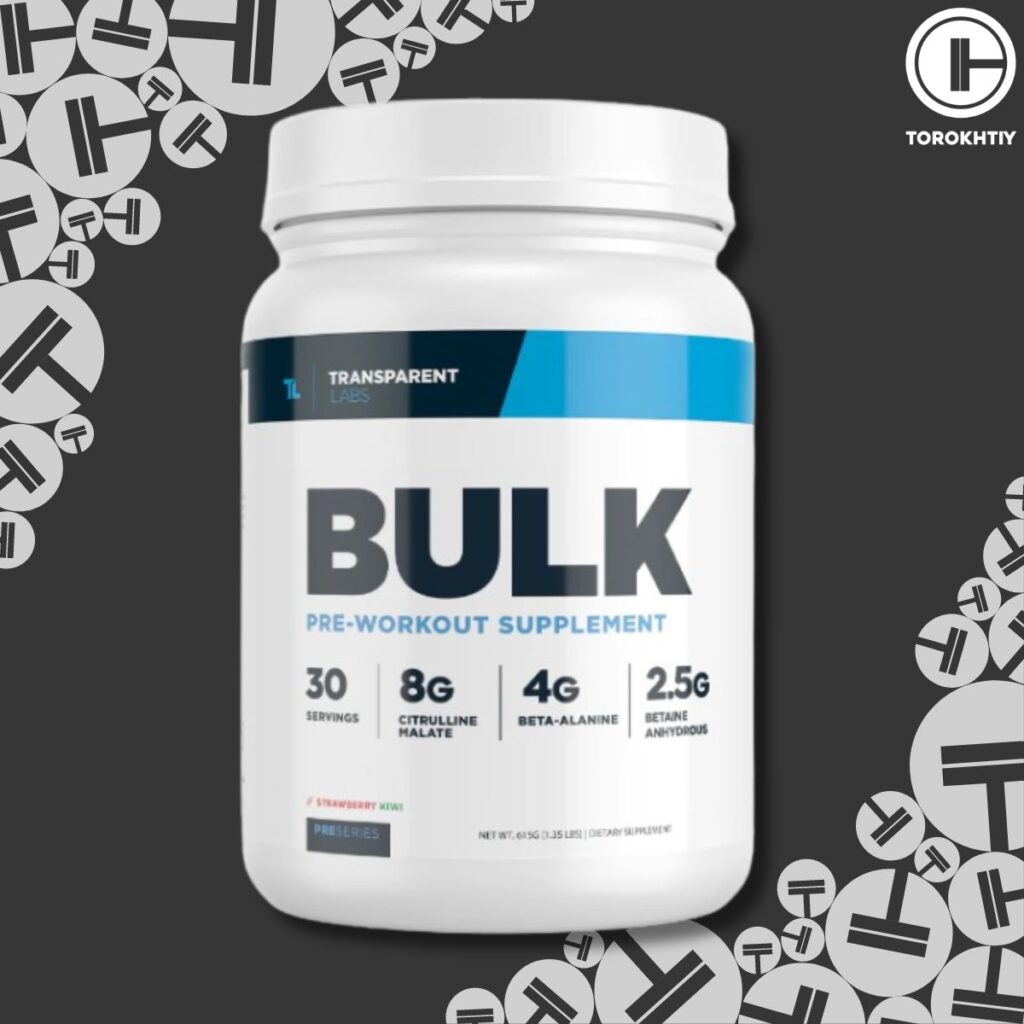
Still have questions after reading our article? Unlock your full potential by engaging with our experts and community! Don’t hesitate — leave a comment below and Oleksandr Maksymenko will provide a personalized answer and insights to help you reach your goals.